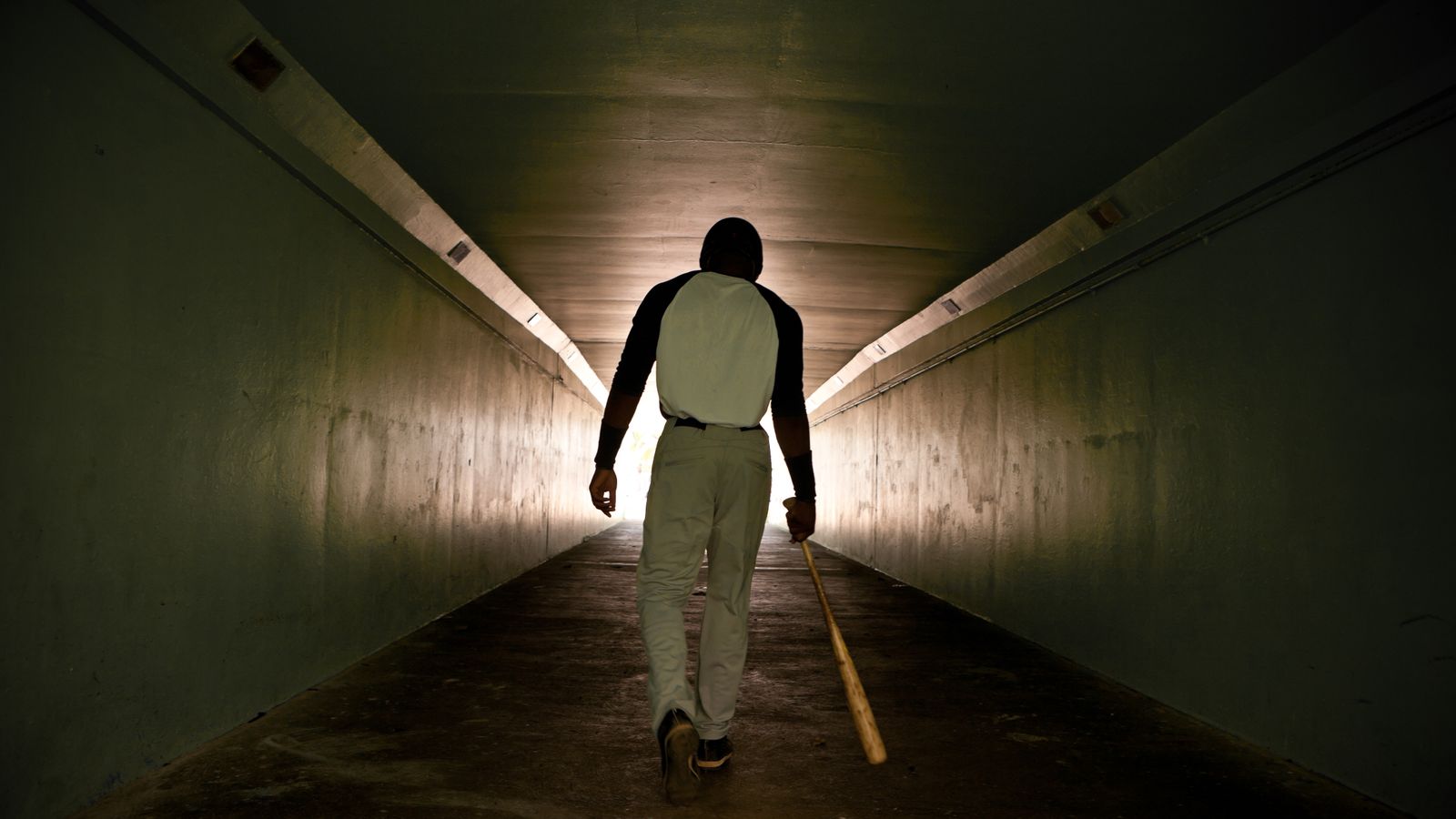He had a thing for bats. The former Wilson High School baseball star was walking down the street in southwest Washington, D.C., back in 1984 when some jokers, new to the area, decided to get cute. Instead of fighting fair, though, the newcomers jumped Wayne “Silk” Perry, which most folks in the area knew was a big mistake.
One of the punks grabbed a huge chain, cracking Perry in the head. But that didn’t knock him out, and when the police showed up, sirens blaring, he took off on foot, running into the projects. The man once dubbed the Michael Jordan of the murder game hid out in an apartment and watched the scene unfold. But instead of keeping his head down and exacting his revenge later, the hit man decided to get even: He jumped out of a window with a bat. The cops, who were still trying to assess the scene, ended up having a ringside seat as Perry reappeared, smacking one of the brothers in the head several times, killing him in cold blood.
“That’s pretty much how the legend goes,” says Eyone Williams, author of Lorton Legends. “According to people who claim to have been there, Wayne got away that day.” Sure, he turned himself over to authorities later, after his mother pressured him, and served several years for manslaughter. But he soon returned to the streets, and in the chronicles of gangster lore, Williams explains, Perry was the most infamous hit man to ever walk the streets of the nation’s capital. The Washington Post labeled the broad-daylight killer one of the District’s most heinous murderers, and Jay-Z immortalized the gangster in rhyme in the song “Tom Ford”: “This is my Wayne Perry flow/Y’all know nothing about Wayne Perry though.”
Perry got his start in crime early; he told me back in 2005 that he put his “first fool in the dirt in 1974,” when he was just 12 years old. By 1976, he said he “was hustling on the street and gambling, using crooked dice and marked or cut cards.” He was considered lucky by older hustlers, so they took him with them all over the city as they gambled. While still in high school, Perry started establishing his reputation as a gangster; by the late 1970s, he was robbing banks and drug dealers. His baseball and academic careers were stopped short when he beat his high school coach with a bat, getting barred from all D.C. public schools in the process.
Perry graduated from bats to guns, which he was all too willing to use. “They knew I’d shoot anybody,” Perry admitted to me. “Police, killers, gorillas — I used to go on robberies with some hella gangsters, but they always took the bullets out of my gun ’cause they said I was trigger happy.” According to law enforcement, Perry acted as a hit man for Alberto “Alpo” Martinez, the Harlem drug lord who flooded Washington with cocaine. Cops say he eliminated witnesses, disloyal gang members and rival drug dealers — basically anyone who threatened Alpo’s drug business in any way.
“Wayne is viewed as someone who didn’t take anyone’s mess,” says Tiffany Chiles, editor-in-chief of Don Diva magazine. “If you had Wayne on your side, he was a protector.” But if you got on his bad side? Well, she says, that “was a problem … for you.” Perry was loyal to a fault, but he was also a prolific killer — a ’hood version of Richard “The Iceman” Kuklinski, who terrorized criminals and civilians alike in D.C. in the late ’80s and early ’90s.
Telecharger bodybuilding training video – torrent stanoprime instructions polyarticular exercise: list and tips for ectomorphic bodybuilding.But by the 1990s, the FBI had Perry in its sights. Finally arrested in 1993 on first-degree murder, Perry was charged in a 27-count indictment, accused of retaliating against a witness, kidnapping, robbery, conspiracy to distribute crack cocaine and murder in furtherance of continuing a criminal enterprise. The indictment alleged that Perry was the main orchestrator of and shooter in eight murders from 1989 to 1991, including that of Evelyn Carter, an ex-girlfriend he allegedly gunned down — a punishment for supposedly compromising him — at Constitution Hall after a Keith Sweat concert.
And how was the killer who hid in bushes all night to wait on targets and forced drug dealers to pay him tribute taken down? It never occurred to him that his partner Alpo would snitch him out and pin all the murders on him. The U.S. Attorney’s office sought the death penalty, which prompted Perry to plead guilty to five counts of first-degree murder. Perry, who now goes by the name Nkosi Shaka Zulu El, was sentenced to life without the possibility of parole, putting the reign of Washington’s most-feared assassin to an end. He is currently in a maximum-security facility in Washington state.
“The names of Alpo and Wayne Perry will forever be linked because the betrayal that took place between them was just as renowned as the bond they once shared,” says Cavario H., author of Raised by Wolves: Inside the Life & Mind of a Guerrilla Hustler. “Alpo’s gregarious character and storied charisma somehow circumvented the already-well-known shooter’s usually impenetrable veneer,” he explains, giving Alpo “a unique opportunity that few ever had: a chance to get rid of the boogeyman.”



